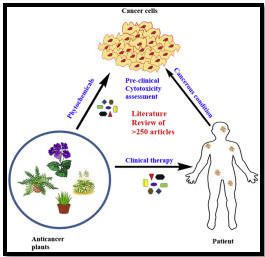RESEARCHERS ENGINEER PLANT CELLS TO PRODUCE DRUG FOR CANCER
Why in the News?
- Scientists at Indian Institutes of Technology Madras and Mandi have successfully metabolically engineered plant cells to enhance the production of the anti-cancer drug camptothecin (CPT).
Source: ScienceDirect
Addressing Camptothecin Production Challenges
- Camptothecin (CPT), a vital anti-cancer alkaloid, is primarily extracted from the endangered plant Nathapodytes nimmoniana in India.
- Nearly 1,000 tons of plant material are required to produce just one ton of CPT.
- Due to extensive harvesting, major plant sources of CPT are now red-listed by the IUCN, with a 20% population decline in the last decade.
- This research offers a sustainable solution to reduce the pressure on endangered plant species, such as N. nimmoniana, while meeting the demand for vital cancer-fighting drugs.
Technical Details
- The metabolic model was developed using experimental data and computational tools.
- Enzyme targets for overexpression and downregulation were identified and ranked to maximize CPT production in plant cells.
- An enzyme identified through the model led to the development of a 5-fold higher CPT-yielding plant cell line.
Funding and Publication
- The study was funded by the Science and Engineering Board (SERB) and the Department of Science and Technology (DST) in India.
- It was published in the peer-reviewed journal “Frontiers of Plant Science.”
Potential Impact and Significance
- Integration of metabolic engineering with bioprocess engineering principles can enhance sustainable CPT production.
- The research paves the way for efficient commercial production of CPT and other vital alkaloids, reducing dependence on nature.
- CPT is a crucial component in the development of cancer drugs, making its production essential.

 Source: ScienceDirect
Source: ScienceDirect

